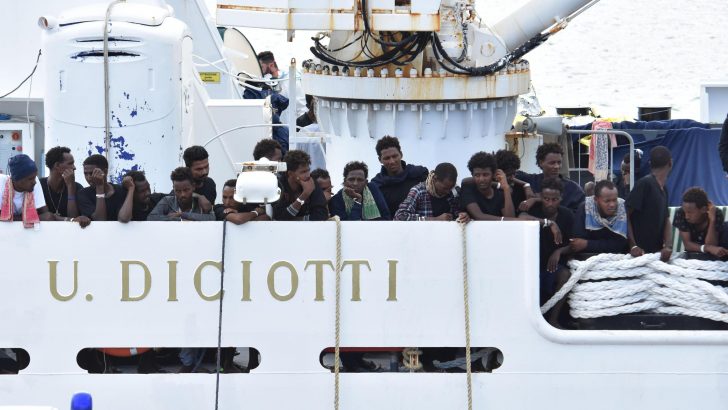Reproduce St Joseph’s ‘ideal of service’ Pope tells Oblates
Pope Francis told the Oblates of St Joseph that for decades he has relied on the intercession of St Joseph, and “never, ever has he told me ‘no’”.
“We should draw courage from this,” the Pope said on August 31 as he met with members of the order’s general chapter.
“For more than 40 years, I’ve been praying a prayer that I found in an old French missal which says of St Joseph, dont la puissance sait rendre possibles les choses impossibles (‘whose power makes possible things that are impossible’) – and never, ever has he told me ‘no’. That’s the power of St Joseph,” the Pope said.
The goal of the Oblates, he said, is to “reproduce in your life and apostolate the ideal of service” modeled by St Joseph, “starting from an imitation of his discreet, humble and hardworking style”.
The earthly father of Jesus “lived with fidelity and simplicity his vocation of watching over Mary and Jesus,” the Pope said. “He was close to his wife in joyful moments and difficult ones,” building a family with Jesus.
Trustworthy mediators needed for peace says UN nuncio
Genuine peace mediation needs trustworthy mediators and must include all parties for a good that is mutually beneficial to all involved, said Archbishop Bernadito Auza, the Holy See’s Apostolic Nuncio and Permanent Observer to the UN in New York.
Speaking last week at an open debate of the Security Council on mediation and settlement of disputes, the Vatican diplomat drew lessons from successful Holy See-mediated peace processes in disputes between Argentine and Chile, in Mozambique and recently in Colombia.
“The more demanding the path that leads to peace and understanding, the greater must be our efforts to acknowledge one another, to heal wounds, to build bridges, to strengthen relationships and support one another,” Archbishop Auza quoted Pope Francis, and stressed that the culture of encounter, involving mutual respect and understanding, must be at the heart of not only settling disputes but also in daily life.
Rome takes 100 migrants after political stalemate
One hundred migrants, most from Eritrea, arrived at a Catholic-run centre near Rome after officials from the Italian bishops’ conference negotiated their release from an Italian coast guard ship.
They had been on the ship, the Diciotti, for 11 days.
The Italian coast guard rescued some 180 migrants from an overcrowded boat at sea on August 15, but Italy’s interior minister, Matteo Salvini, refused to allow them to enter Italy. Eventually 13 were taken to Lampedusa for medical treatment.
The boat docked in Catania, Italy, on August 20 and Salvini still refused to allow the migrants off the boat, insisting that other countries in the EU had an obligation to share the burden of caring for them. Under intense international pressure, he allowed the 27 unaccompanied minors aboard to disembark on August 22.
Then on late August 25, Salvini tweeted: “After so much hard work, insults, threats and inquiries, we finally have the solution for the ship Diciotti.”
Ireland and Albania each agreed to take 20 of the migrants; the Catholic Church in Italy offered to take the remaining 100.


 Migrants wait to disembark from Italian Coast Guard ship Diciotti in the port of Catania, Italy
Migrants wait to disembark from Italian Coast Guard ship Diciotti in the port of Catania, Italy 